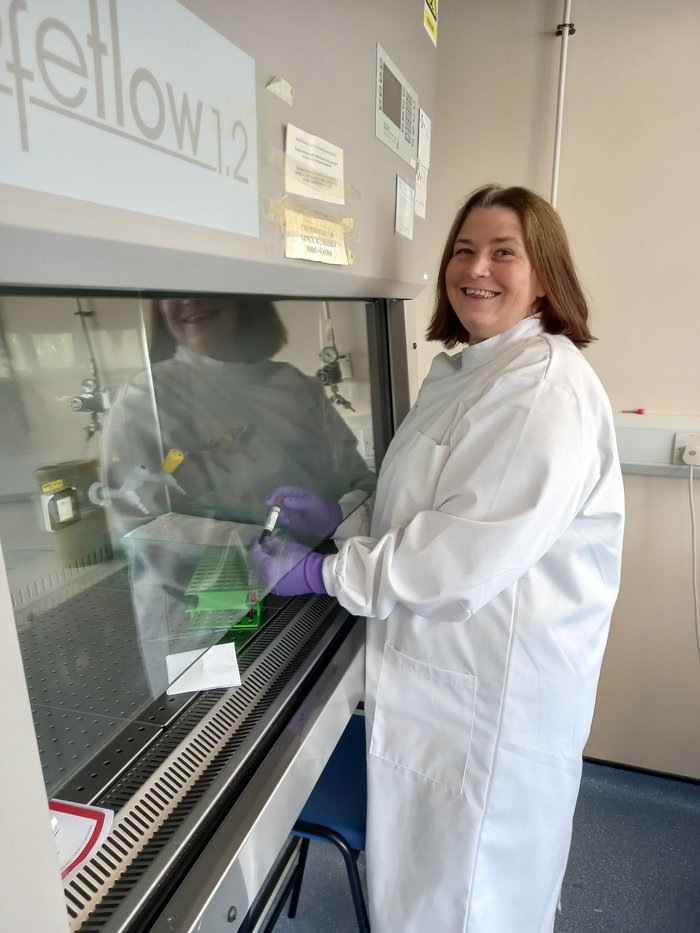Finding out how our genetic code might cause myeloproliferative neoplasms (MPN)
Little is known about the causes of myeloproliferative neoplasms (MPN), a group of rare conditions that affect the blood. Professor Anderson is studying the DNA (genetic code) of people with the disease to understand what might be responsible for causing it.

Professor Lesley Anderson in the lab
The challenge
Myeloproliferative neoplasms (MPN) are group of rare conditions that affect the blood, affecting approximately 5,000 people in the UK every year. In MPN, the body produces too much of particular type of blood cell. Little is known about the causes of MPN, although research has shown many cancers are caused by genetic alterations that people are born with, as well as things that they are exposed to during their life.
The project
Professor Anderson and her team plan to look at data and samples from people with MPN to identify small changes in our DNA that might be responsible for causing the disease. He also hopes to combine this with an investigation of other factors such as where people live, and what job they do, as these factors can 'turn on' or 'turn off' genes, which can influence the chance of someone developing some cancers. They hope to use this information to help find ways to prevent MPN, help doctors to diagnose it more quickly, and develop new ways to treat this disease.
The future
This research is essential, as it has the potential to help increase our understanding of how MPN develops. This could allow researchers to create better screening methods and help find new and better ways to treat people with the disease. Ultimately it could mean people with MPN can be diagnosed faster and given better treatments that more effectively target their cancer.
